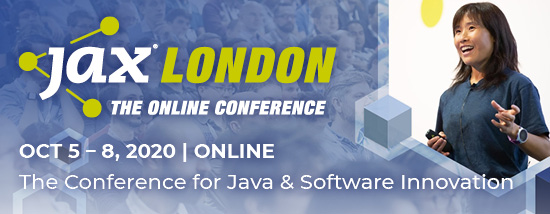A research study by The National Center for Women & Information Technology showed that “gender diversity has specific benefits in technology settings,” which could explain why tech companies have started to invest in initiatives that aim to boost the number of female applicants, recruit them in a more effective way, retain them for longer, and give them the opportunity to advance. But is it enough?
Four years ago, we launched a diversity series aimed at bringing the most inspirational and powerful women in the tech scene to your attention. Today, we’d like you to meet Miriam Bressan, Manager Solution Engineering, Global Accounts in CEMEA and SEMEA at VMware Tanzu.
Today’s Woman in Tech: Miriam Bressan, VMware Tanzu
 Miriam Bressan is Manager Solution Engineering, Global Accounts in CEMEA and SEMEA at VMware Tanzu.
Miriam Bressan is Manager Solution Engineering, Global Accounts in CEMEA and SEMEA at VMware Tanzu.
When did you become interested in technology? What first got you interested in tech?
My fascination started very early. My parents didn’t allow me to have a Gameboy or game consoles. But there was an old Atari with an unbelievable amount of floppy disks that nobody really needed anymore. The manual wouldn’t have been able to help me, because it was in English, so: Learning by doing 😀
When I was 18, I saved up for my first real PC, which I built myself. Fun fact: The motherboard, drive, and card reader are still in my tower 🙂 Back then they thought BlueRays would be the absolute hit and now I’m looked at incredulously when I say I can burn BlueRays.
I studied computer science – “media and communication informatics” to be exact – and wanted to become either a game developer or a penetration tester. Somehow it turned out differently…
How did you end up in your career path?
At my college, we exhibited our project, a project management tool, at an open house. My first boss asked me to get in touch if I ever needed an internship. In fact, my studies included a semester abroad or an internship, so I had the chance to go to Berlin for half a year. It wasn’t at a cool IT-Sec start-up or in the gaming industry, but in business development for the public sector at a large system integrator (Computacenter), but hey, Berlin anyway!
There I learned how incredibly many different facets and jobs IT has. I found consultants the most exciting: They were constantly allowed to travel to projects, here a demo, there an escalation, here digging through the logs for a PoC, and they had so many different customers whose problems and visions they could get to know. I wanted that too.
So I also did my bachelor’s degree at the company and at the same time started the trainee project to become a consultant. At the same time, I had a part-time position as a team assistant for the presales team, automated my own job as much as possible using small SharePoint applications, and was allowed to be at the forefront of innovation topics. These were containers, cloud, and DevOps. As a DevOps consultant, I was then allowed to travel, attend conferences, neglect my private life a bit, and started a master’s degree in Applied IT Security on the side.
One day, Pivotal came around the corner with an exciting PreSales role: no need to be onsite full-time with the customer, and a compelling startup-like culture. “Transforming how the world builds software” sounds visionary.
Last year, we Pivots (as we called ourselves) became part of VMware (again) through an acquisition. I had reached a point where I didn’t really want to travel that much anymore. The opportunity to participate in an internal “Aspiring Managers Program” arose. As part of all the restructuring, a position actually became available in the first-line management of the PreSales area of my team at the time, I applied and was given the chance with a great boss, mentor, and colleagues.
Absolutely, I had really good managers throughout, who always gave me the chance to develop myself further, to leave my comfort zone, and brought me together with experienced colleagues, from whom I could learn so much more than my studies could have offered.
Did you receive support from your family and friends? Do you have a role model?
Absolutely, I had really good managers throughout, who always gave me the chance to develop myself further, to leave my comfort zone, and brought me together with experienced colleagues, from whom I could learn so much more than my studies could have offered. At Computacenter, Consultancy had an impressive boss at the time who could captivate huge halls at conferences and yet, didn’t seem unapproachable. At VMware the PreSales organization is led by Christine Hensel, who I would definitely see as a management role model with her level-headed manner.
Did anyone ever put obstacles in your way?
Of course they did 🙂 Over and over again. Like one of those motor skills trails where you have to walk, climb and balance on the wobbling beam. And if you fall off, someone asks “Is everything ok?” or maybe helps you up. And then you go through the section again and again until you get it down. That’s what it’s all about, isn’t it?
A day in Miriam’s life
I really enjoy not only taking care of customers, technology, strategies, and organizational issues, but above all people. And that, in my opinion, is the core of a first-line manager’s job. I’m still in my first year in this position and in many situations I’m not quite sure who is coaching or managing whom… but that’s okay. You don’t become a manager by just changing the title in your signature.
What have you developed? Can you tell us about the project?
What always excites me the most is to see how our VMware Tanzu Labs teams, in close consultation and cooperation with the respective customer teams, teach them “our” way of developing software. Together on a huge board with stickies we go through the user workflow or work out the grown components and processes of the partly quite old applications, not as a service purely for the customer but rather together with the customer on his critical applications. Of course, the build, deployment, and runtime management challenges are also considered and automated. We work by pairing with the customer, whether virtually or actually with two mice and keyboards at a common pairing station. Not only software developers, but modern platform operations teams also benefit from this methodology. To mirror your ideas again and again with the pairing partner is exhausting, but it promotes the exchange of ideas and knowledge and the four-eyes principle contributes to a secure, better documented, and cleaner code.
Why are there so few women in the tech industry? What hurdles do women still have to overcome today?
I don’t think the mindset change has changed yet that girls and women of all ages can be just as good in tech per se, should earn just as much for the same performance and responsibility, and that diversity is fundamentally a good thing for teams. Then there’s no need for quotas.
We need to create a work environment and culture that is open to different life stages, work-life balance requirements, and be fundamentally respectful and trusting of each other. This is not easy, there will probably always be the pressure for growth in our economy, fears, the urge to prove oneself, and currently there are teams that never see each other in-person. Creating a psychologically safe environment is an art all its own – regardless of gender, age, ethnicity, and origin.
Which clichés/stereotypes have you encountered in relation to “Women in Tech”? What problems arise from this?
Honestly – none at all among techies, maybe a skeptical glance. But the bottom line is that I’ve found that techies can very quickly tell among themselves who really wants to learn and understand something, who brings exciting knowledge to the table, and who, to put it bluntly, is simply a windbag. Regardless of gender. In many forums or on GitHub, StackOverflow, and the like, no one really knows who the person behind the contribution is anyway. And that’s not so important, because it’s the content that counts. In my opinion, this is a beautiful side of the tech world.
Another is the sales world. Business is done among people and there are great partnership projects and synergies. But sometimes sales is also a power struggle and requires particularly strong characters, and the battle is not always fought fairly.
Would our world be different if more women worked in STEM?
Certainly, there is enough exciting research in the field that clearly shows that diverse teams in all areas of a corporation have a significant positive impact on the culture in general. This does not only apply to gender and also means that, for example, HR and marketing teams, which often have a high proportion of women, could also benefit from having more men in the team.
In addition, the demand for jobs in the tech industry is very high. If we could make our job and training offers more exciting and open to all genders, we might also be able to meet demand better.
What does the future look like – will the debate about diversity soon be history?
Oh, certainly not “soon” 🙂 but I think we are moving in the right direction.
The number of female students and trainees in STEM fields is increasing significantly. But we still urgently need to work on lateral and re-entry opportunities.
Do you have any tips for women who want to get into the tech industry? What should other girls and women know about working in the tech industry?
Honestly, just do IT. Don’t let anyone tell you that you can’t do tech for whatever reason or that the industry isn’t for you. Try it out and decide for yourself.
More Women in Tech:
- Women in Tech: Abigail Ramlogan, Marketing product evangelist at NetBrain
- Women in Tech: Anna Stoilova, Co-founder & Chief Product Officer at TIKI
- Women in Tech: Priscila Oliveira, software engineer at Sentry
- Women in Tech: Dr. Karen O’Brien, Global SAP Product Development Director, HCL SAP Practice
- Women in Tech: Hadas Weinrib, Head of Marketing, Lightspin
For even more Women in Tech, click here
The post Women in Tech: “Don’t let anyone tell you that you can’t do tech” appeared first on JAXenter.
Source : JAXenter






















